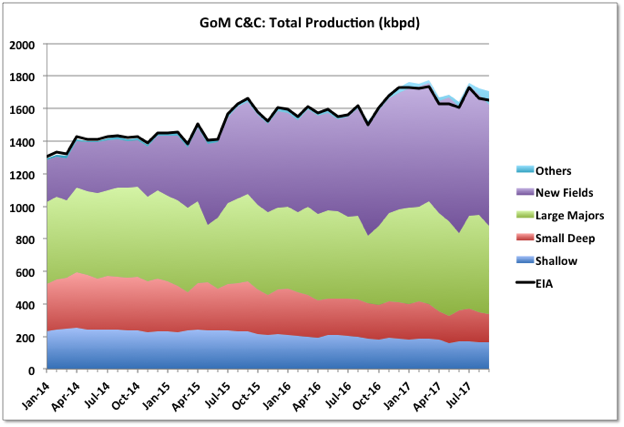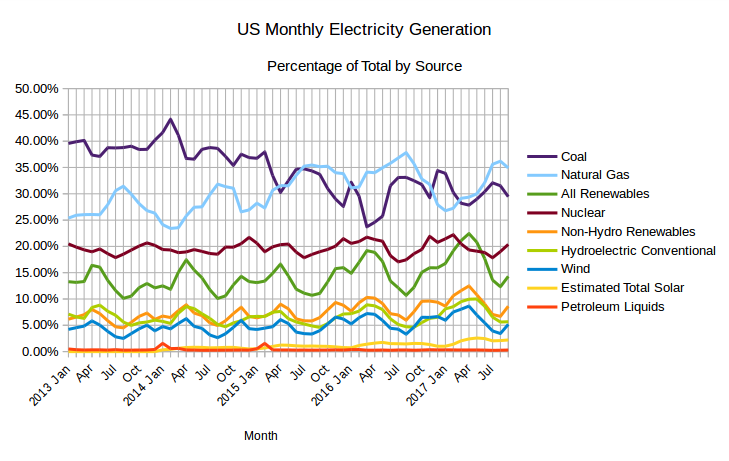A Guest Post by George Kaplan
This briefly covers the production side as the hurricane outages are dominating the trends at the moment, but there’s a section at the end on discoveries and reserves that may give some pointers to future expectations.
The tables below show the production numbers for September, and their relation with previous months from BOEM and EIA, which are pretty close, but for some reason never the same and have actually diverged quite significantly at the moment. Both sets of data get revised, possibly up to a year later, usually those from EIA more than those from BOEM, and they end up with much closer, with EIA usually slightly lower
|
BOEM
|
C&C Production (kbpd)
|
m-o-m (%)
|
y-o-y (%)
|
Average Annual (kbpd)
|
|
July
|
1756
|
|
|
|
|
August
|
1722
|
-2.0%
|
|
|
|
September
|
1706
|
-1.0%
|
12.2%
|
1707
|
|
EIA
|
C&C Production (kbpd)
|
m-o-m (%)
|
y-o-y (%)
|
Average Annual (kbpd)
|
|
July
|
1732
|
|
|
|
|
August
|
1665
|
-3.9%
|
|
|
|
September
|
1650
|
-0.9%
|
9.9%
|
1677
|
For August Hurricane Harvey knocked out about 80 kbpd, Irma in September had a similar impact, but some of the increased drop might be natural decline. Nate in October took out about 250 to 300 averaged over the month. In addition there have been some other unplanned shut downs: Thunder Horse for a few days from an electrical failure following restart after Irma, Delta House following a subsea failure, and a pipeline rupture on Enchilada which took out about 75 kbpd in early November (and is still offline). The Delta House outage has not been reported very extensively but the Rigel field may still be offline, losing 25 kbpd. There is also continued decline in mature fields at about 12 kbpd, which may be accelerating as some of the newer fields are now in decline, and there are no new greenfield developments due until Stampede in first quarter of 2018 – though there may be some in-fill drilling still on some of the larger fields (e.g. Mars, Thunder Horse) and a couple of wells for Phoenix and Holstein (see below).
It remains to be seen but with these outages it looks like this year will not exceed 1700 kbpd on average; it will however still be a record a year, although well down on most predictions from last year, and the exit rate will be below last year’s. Recent adjustments to the EIA numbers now mean that September 2009 remains their peak month, with March this year the secondary peak. Without the outages August might just have edged a new overall peak.
BOEM Data
EIA GoM Data
C&C Production

Read More


